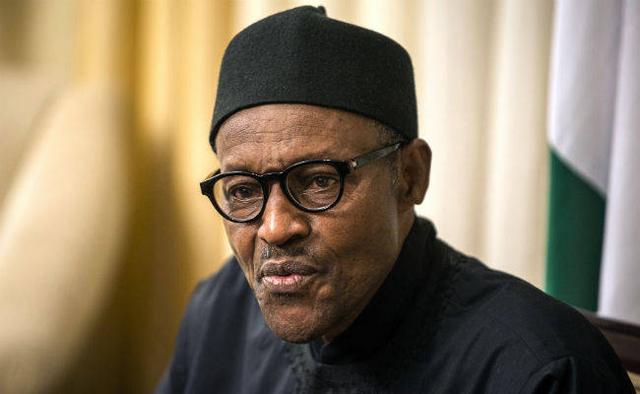
Lagos, Nigeria | AFP |
It’s not Nigerian President Muhammadu Buhari’s fault that Nigeria’s economy is inextricably tied to the global price of oil, now half of its 2014 peak of over $100 per barrel.
But the president’s response to the economic crisis has a growing number of people concerned that he doesn’t have what it takes to rescue Nigeria from recession.
Warning signs appeared early. Buhari took six months after being elected to name a finance minister, then vowed not to “kill the naira” by devaluing it, against expert advice and with nefarious consequences.
His seemingly lackadaisical attitude to the crashing economy spooked investors who worried that he was ignoring the crisis.
Now critics are coming from all sides. In October, Buhari’s wife Aisha told the BBC that she may not back him in the next election, suggesting that his government had been hijacked and he had lost control.
Buhari’s response, that his wife “belongs to my kitchen”, made Nigerians cringe. But what he said next was, politically, more revealing.
“It is not easy to satisfy the whole Nigerian opposition parties to participate in the government,” Buhari said.
He can say that again. Over the past month, the president has repeatedly been stonewalled by lawmakers who want the executive to be more transparent about his economic policies and plans.
Early this month, Nigeria’s Senate rejected Buhari’s attempt to take on almost $30 billion in external borrowing to fund his record budget “due to lack of documents” supporting his request.
The Senate also “expressed surprise” at the Nigerian Law Reform Commission, who said it was considering jailing or fining people for holding dollars in an unconventional strategy designed to address a foreign currency shortage in the country.
“The measure is disruptive and counter productive, threatening to undermine many of the reform efforts… intended to boost investor confidence,” the Senate said in a press statement Monday.
‘Policy paralysis’
“The president is having difficulty making any kind of legislative headway,” John Ashbourne, economist at Capital Economics, told AFP.
“It adds to the sense that there’s policy paralysis and when the economy is facing a difficult time we need some action. We can’t get that if Buhari isn’t able to negotiate.”
Nigeria’s economy contracted in the third quarter by 2.2 percent, with rebels in the oil-producing southern swamplands continuing to attack pipelines and businesses struggling to access foreign exchange.
“I think the recession is really starting to hurt,” Razia Khan, Africa economist at Standard Chartered Bank, said.
“With the current shortage of foreign exchange clearly having a detrimental effect on growth, there is little evidence of any meaningful policy initiative that might be able to resolve this,” Khan said.
“There is a concern that there isn’t enough momentum, not enough is being done.”
Ideally, Buhari’s expansionary budget would have boosted growth. But the fiscal stimulus isn’t materialising.
In October, the budget ministry said it was facing unanticipated revenue shortfalls and that it had spent only a little more than half of what was allocated for 2016.
Revenue shortfalls will persist as long as militants continue sabotaging the oil and gas infrastructure.
Today Nigeria’s oil production is 1.6 million barrels per day, down 22 percent from the same period in 2015, with no signs the sabotage will stop.
‘Military ruler’
Talks with the militants in the south have been unsuccessful so far.
“President Buhari and his government have so far failed to hold constructive talks with militants,” Rhidoy Rashid, oil analyst at Energy Aspects, said in a recent note.
“The Nigerian military has also continued its operations in the Delta, inflaming tensions while failing to disrupt the militants.”
Investors are rattled and want to see a more concrete plan from Buhari’s government, said Manji Cheto, risk analyst at Teneo Intelligence.
“I believe he continues to act as if he’s a military ruler, there is a perception that has undermined the ability of policy makers within his government to take decisions,” Cheto said.
“I genuinely think that he’s pretty much run out of his goodwill.”
Some polls are already reflecting that sentiment. Last year around this time, Buhari enjoyed an 80 percent approval rating, reported analysis firm BMI Research.
Compare that to this September, when his approval rating hit just 41 percent, with voters bearing the brunt of 18 percent inflation, slow business and sputtering electricity, the result of lower oil and gas output.
 The Independent Uganda: You get the Truth we Pay the Price
The Independent Uganda: You get the Truth we Pay the Price



